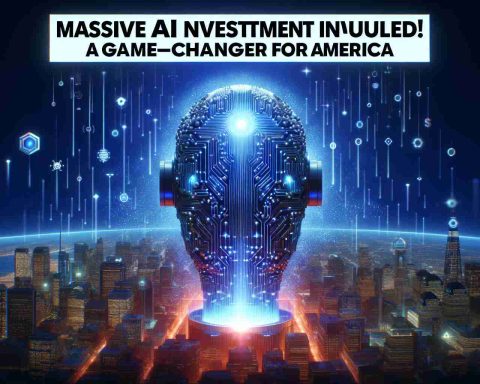Sam Altman, the CEO of OpenAI, has recently shared an insightful perspective on the transformative potential of artificial intelligence. Through his piece titled “The Age of Intelligence,” he articulates a future where AI catalyzes unprecedented human advancement, predicting the emergence of superintelligence within the next decade. He expresses optimism about achieving this milestone, indicating that a significant leap in AI capability may occur soon.
Currently, OpenAI is dedicated to developing AGI, or artificial general intelligence, which aims to replicate human cognitive abilities across a range of tasks. Unlike AGI, superintelligence refers to an AI that not only mimics human intellect but surpasses it in every conceivable way. Altman’s discussions around superintelligence have stirred considerable debate, especially in light of existing literature that analyzes its potential ramifications.
As the landscape of AI evolves, it raises vital ethical and practical questions. The prospect of advanced algorithms autonomously making critical decisions enhances the urgency to clarify accountability regarding these technologies. Insights from other thinkers, such as Nick Bostrom, explore potential dangers tied to superintelligent systems and stress the need for societies to prepare for these advancements thoughtfully.
The future, as envisioned by Altman, suggests an era where AI integration becomes essential. With appropriate infrastructure and ethical frameworks in place, artificial intelligence could unlock extraordinary opportunities while mitigating risks, ultimately reshaping our interaction with technology and its role in society.
Envisioning the Future of Artificial Intelligence: Challenges and Opportunities
Artificial Intelligence (AI) continues to evolve at a rapid pace, prompting visions of a future that could fundamentally alter human existence. As we look forward, it is crucial to examine not only the prospects of advanced AI but also the accompanying challenges and ethical considerations that will shape its development.
What are the key questions driving the future of AI?
1. How do we ensure the safe development of AI?
The pace of AI innovation demands robust safety protocols to prevent potentially harmful outcomes. Ongoing discussions emphasize the significance of embedding safety measures throughout the AI lifecycle, from development to deployment.
2. What role will humans play in an AI-driven world?
As AI systems become more autonomous, stakeholders must reconsider workforce dynamics. Questions arise regarding job displacement and the need for upskilling workers to collaborate effectively with AI technologies.
3. How can we mitigate biases in AI systems?
AI systems are susceptible to biases due to the data they are trained on. Addressing these biases is crucial to avoid perpetuating discrimination and to ensure equitable outcomes across diverse populations.
What are the key challenges and controversies associated with AI?
While the benefits of AI are enticing, several challenges and controversies must be addressed:
– Data Privacy Concerns: As AI systems rely heavily on data, there are increasing concerns regarding user privacy and data security. Striking a balance between AI functionality and individual rights remains a critical challenge.
– Ethical Use of AI in Decision Making: The use of AI in sectors like healthcare, criminal justice, and hiring processes raises ethical questions about accountability and fairness in decision-making. Ensuring transparency in AI processes is vital to build trust.
– Regulatory Challenges: The absence of comprehensive regulations governing AI can lead to unintended consequences. Policymakers are grappling with how to regulate AI while fostering innovation.
Advantages of Artificial Intelligence
The advantages of AI are expansive. Some key benefits include:
– Increased Efficiency: AI can automate repetitive tasks, leading to increased productivity and efficiency in various industries. This can free up human resources for more complex, creative tasks.
– Enhanced Decision-Making: AI has the potential to analyze vast amounts of data quickly, aiding human decision-making processes. In fields like healthcare, AI can assist doctors in diagnosing diseases faster and more accurately.
– Personalization and Customization: AI can provide personalized experiences in sectors such as retail and entertainment by analyzing user preferences and behaviors.
Disadvantages of Artificial Intelligence
However, there are notable disadvantages that accompany these advantages:
– Job Displacement: The automation of tasks may lead to significant job losses in certain sectors, necessitating a societal shift in workforce training and education.
– Dependence on Technology: As we integrate AI more into our daily lives, there is a risk of over-dependence on technology, which may impair critical thinking and problem-solving skills.
– Security Risks: Advanced AI systems can be vulnerable to cyber attacks, raising concerns about national and corporate security.
Concluding Thoughts
The future of artificial intelligence presents a spectrum of possibilities, characterized by both opportunities and challenges. As society moves toward greater integration of AI, it is imperative to engage in thoughtful discourse about ethical, regulatory, and practical implications. For sustainable progress, stakeholders must prioritize safety, transparency, and inclusivity in AI development.
For further exploration of AI’s impact and future trajectories, visit OpenAI and AAAI.
















